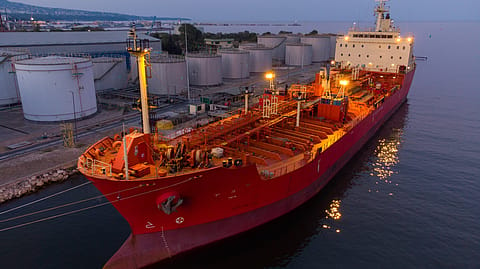Iran may gain leverage with Hormuz blockade, but will it hurt China’s interests in fight against West?
Though unprecedented, the possibility of Iran blocking the significant oil choke point has already increased the Brent crude prices to $77.57 per barrel as of today, compared with $69 per barrel on June 12.

Will Iran block the Strait of Hormuz, which accounts for about 20% (20 million barrels per day) of the global oil supplies, is a million-dollar question the global economy is grappling with in the wake of the US bombing Iran’s three nuclear facilities. Located between Oman and Iran, the strait connects the Persian Gulf with the Gulf of Oman and the Arabian Sea.
As things stand right now, Iran’s Parliament has ratified the proposal to shut the Strait of Hormuz unanimously, in retaliation for the US’s airstrikes on its nuclear facilities at Fordow, Natanz, and Isfahan. All eyes are now on Iran’s National Security Council, which will make the final call on the matter.
Explaining the strategic significance of the Strait, the US Energy Information Administration analysis dated June 16 said, “Flows through the Strait of Hormuz in 2024 and the first quarter of 2025 made up more than one-quarter of total global seaborne oil trade and about one-fifth of global oil and petroleum product consumption. In addition, around one-fifth of global liquefied natural gas trade also transited the Strait of Hormuz in 2024, primarily from Qatar.” The strait is about 70 km wide.
Though unprecedented, the possibility of Iran blocking the significant oil choke point has already increased the Brent crude prices to $77.57 per barrel as of today, compared with $69 per barrel on June 12.
As the world is closely watching Iran’s next move with bated breath, expert opinion on the possibility of a Strait of Hormuz blockade by Iran is divided. One view is that even though it may be an extreme measure, Iran may opt for it to use it as leverage. The other being Iran’s incapability to do so militarily and the possibility of any such move antagonising its ally, or silent ally, China, given its dependence on the region for oil imports.
Calling it an “extreme step”, strategic affairs expert Sushant Sarin is of the view that Iran may resort to it to use it as a leverage to bring the other protagonists in the conflict – the US and Israel to a talking table.
“Look, it will be an extreme measure if Iran is to block the Strait of Hormuz. It will hurt not only the countries in the region but also the countries across the world. It will interrupt oil supplies and impact the oil prices,” Sarin told Fortune India, adding that it is “Of course doable”.
Recommended Stories
“The question is how long it is doable. For a couple of weeks before Iran is pushed into submission. Or, until everyone accepts that Iran has a bargaining chip, which no one can ignore. And it can leverage that bargaining chip to get a somewhat better deal at the dialogue table. So, it entirely depends on what the Iranian calculations are,” said Sarin, adding that it will be an extremely provocative step to take.
Sarin said that as of now, Iran has no bargaining power. “It is being bombed into submission. A sort of regime change is being attempted. This (blocking the strait) increases its bargaining position,” he added.
Oil and gas expert Narendra Taneja told Fortune India that, as of now, Iran may not be capable of doing so militarily and would not prefer antagonising its ally, China.
“This channel is used by the major exporters like Kuwait and Iraq for exporting oil to the whole world. There are two questions. Does Iran still have the military capability to block it? And even if they try, will they be allowed to do so by the US and Israel?” said Taneja.
(INR CR)
Secondly, even if they succeed in partially blocking it, there will be an impact on China, a major crude importer from Kuwait, Iraq, UAE, and Oman, apart from Iran itself. China imports 1.4 million barrels per day from Iran. Last month, they bought two million bpd of oil per day from Iran. They need China more than anything right now,” Taneja said.
“China has promised to invest $462 billion in Iran. They have already invested $180 billion in the country. Is Iran in a position to antagonise China at this stage? The answer is very clear,” Taneja added, saying on a scale of ten, the possibility of Iran going ahead and blocking the area is three.
Sarin points out that the strait is controlled partly by Oman and partly by Iran, but international law has become redundant as of now.
Meanwhile, US Secretary of State Marco Rubio has condemned the move as ‘economic suicide’. He has warned that blocking the strait would lead to a strong American and allied military response. He has also urged China to intervene with Iran and prevent any closure, underlining Beijing’s heavy dependence on the channel for energy imports.